1 Comment
Bishop McGrattan's homily at the Memorial Liturgy for those grieving the loss of a child through miscarriage and stillbirth, November 24, 2022 at St. Mary's Cathedral. In the communal life of the Church the witness of faith and belief in Christ is always confirmed in the following – “Faith if it is genuine works through love”. Another way of stating this truth is that in the Christian life our faith is to be expressed through acts of love. This evening those families who have gathered, parents, grandparents, and children are united in the painful reality that they have suffered the loss of a child through miscarriage or stillbirth. Despite this pain and grief which is shared by those here present they also witness to a communal act of love in the remembering of their children in prayer. This is also a genuine witness of faith to the sanctity of life. That all human life from conception to natural death is a gift from God who is the Creator. He is the author of all life and in Christ we come to know and believe that through his death and resurrection we receive the gift of eternal life from God the Father. This is the hope that must also unite us in the prayer of this memorial liturgy. In the Old Testament, the remembering in prayer of God’s salvific presence in the midst of his people was always an act of “anamnesis”. It is a spiritual remembering and an act of faith in which they experienced the very presence of God’s love. In the First Letter of John this evening we heard the sacred author reminding the early Christians of this same truth. “See what love the Father has given us, that we should be called children of God; and that is what we are”. Other translations of this passage replace “See” with “Remember”. This evening we remember the love that the Father has given these parents through marriage. A love in which He invites husband and wife to share in His “co-creative love”, to express mutual love for each other and to be open to bringing new life, children into the world. 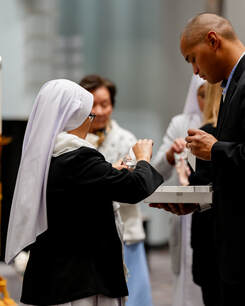 This vigil celebration of prayer for those children who did not receive the gift of being born into a family are still known by God as his children, like us. Although you as parents did not receive the joy of knowing your children you do share the anguish, sorrow and despair of their loss. However, in the faith that we share in being disciples of Christ, the suffering we experience now will always be transformed by Christ and that “what we do know is this: when he is revealed, we will be like him, for we will see him as he is”. This is the hope that we pray will sustain us as it did the early Christians. In the Beatitudes Jesus teaches his disciples that despite the present circumstance of their life the future they desire will become one of blessing and happiness if they maintain their faith in Him. This is the faith that allows one to trust that the fullness of our life is revealed in Christ. This would have been the desire and the faith of these parents for the children that they have lost. To be baptized into the fullness of the life of Christ. At the conclusion of this liturgy we incorporate the sign of light, in the lighting of a candle. Light symbolized the dispelling of darkness, and spiritually it overshadows for believers the sadness of death. The light of the paschal candle for Christians symbolizes the eternal light of the resurrection of Christ. As you come forward to light the candles for your children and their names are proclaimed, you are uniting yourselves in this communal act of love in remembering the children you mourn, but also it is a sign of your genuine faith and belief in the resurrection of Christ for your children. We who gather support you in the loss of your children, but in faith and through our prayers, we pray that they now share in the eternal life of Christ and God the Father.
Fr. Avinash Colaco, Rector of St. Mary’s Cathedral, explained that people had been asking when we would host another sit-down meal. When Bishop McGrattan suggested a Thanksgiving dinner, it seemed like the perfect opportunity. Both guests and volunteers were excited for that day. The program has made some changes. In the past, the meals were cooked right on site and served. But now they are catered. For now, a hybrid program is in place where guests have the option to sit-down and eat, or to receive a takeout package. “This is a new system that we are developing” said Fr. Avi, adding that the program will run on Sundays for 48 weeks this year. “I enjoyed the chance to go to each and every table and talk to the guests that came in. Building relationships with our community members is an important aspect of our program.” Alejandro Henao, coordinator of the Feed the Hungry Program with the Diocese, said the Sunday Thanksgiving meal, which was sponsored by St. Mary’s Parish in Cochrane, was the first sit-down meal since March 2020 when they were put on hold due to the pandemic. “Our Thanksgiving meal consisted of turkey, mashed potatoes, stuffing, gravy, green beans and a salad. Dinner was topped off with dessert, a choice of apple crumble or pumpkin pie and whipping cream. Fresh coffee, lemonade and water were also provided. “We are very grateful to all volunteers for their commitment and understanding through the transition,” he said. "376 guests were thrilled to be able to come in and relax and enjoy music while they ate their meal, while another 120 preferred to continue with the takeout option. Each guest left with a food package containing fresh fruit, granola bar, trail mix, juice and water.” During the past two years of the pandemic, the program continued but only with the takeout option. Henao said it hasn’t been decided yet if the takeout option will continue with the program now that sit-down meals are back. “It was great to be back. The volunteers were really excited and happy. They have been obviously kind of asking for this for the last six, seven months after the (health) restrictions were lifted,” he said. “For the clients it was positive too . . . We also had a pianist playing some music that weekend to provide more excitement and promote a warm environment for dinner.” Carla Neary, who has been a volunteer for about 15 years and has been area lead for about seven years, said she continued to come in and volunteer during COVID. “My mandate was to get us back in the hall for a sit-down meal. (Thanksgiving) Sunday was an amazing day . . . Food was provided by Spolumbo’s and Sunterra which was fabulous and it was just great to have our guests back in our dining hall and all the volunteers. I haven’t seen so many of them for so long,” she said. “Everybody was appreciative. Everybody was so happy to be back into the hall. We had live music. It was just a lovely afternoon and everything worked out really well.” The Feed the Hungry Program continues to encourage people to volunteer for this rewarding ministry. At least 60 volunteers are needed at each dinner. They also invite organizations and corporations to sponsor dinners as a way to provide their staff and stakeholders with meaningful opportunities to do good work and build community.
The Calgary Catholic Medical Association (CCMA) would love to invite and meet with you at our upcoming event. Please join us for the White Mass (Feast day of St. Luke) Tuesday, October. 18, 2022 at 7 pm, at St. Mary's Cathedral (Calgary) with Bishop McGrattan. This mass is open to the public and is not limited to only health care professionals. About CCMA The Calgary Catholic Medical Association (CCMA) has been a running lay Association for 20 years. It is the only multidisciplinary Catholic Association of health care providers in Canada. Our mission is to foster the personal and professional formation of healthcare professionals, in accord with the magisterium of the Catholic Church. Membership includes voting and nomination privileges at the AGM, early notification of upcoming events, early bird discount pricing for social events, but most importantly, a community that holds common ground in faith and interest in health care. To share some personal experiences of the CCMA, we have testimonies from a few members of the Executive Council.
I have been part of the CCMA since 2016, first as a spouse of a member, an allied health member, and then as a member of the Board. For me, this association is a place of community and connection with others of the same faith and values. Sometimes religion and spirituality can be very personal and hard to talk about, however, I have realized that spirituality is what gives us meaning in life, whether for ourselves or for the people we care for. This has been the place to share in how we can live out our faith while exhibiting the love and care like Jesus did within both our personal and professional roles. To contact CCMA, visit their website at https://catholicmedyyc.wordpress.com
or email [email protected] The Paradoxical Commandments
On this 25th anniversary of Mother Teresa’s death, Bishop McGrattan highlights the words of “The Paradoxical Commandments,” embraced by this saint of the poor. When Mother Teresa first heard these words, written by Dr. Kent M. Keith, an American lawyer, writer and leader in higher education, she was moved to put them on the wall of one of her homes for children in Kolkata. They are a sure guideline for finding personal meaning in the face of adversity and transcend all creeds and cultures. They very aptly describe Mother Teresa’s way of dealing with such a huge number of people throughout her lifetime.
May 18, 2022
Dear Sisters and Brothers in Christ, The great feast of Pentecost celebrates the outpouring of the Holy Spirit into the life of the Church through the Apostles, the disciples, and with Mary, the mother of our Lord, who were gathered in the upper room “constantly devoting themselves to prayer” (Acts 1:12-14). This gathering for worship is necessary for our identity as disciples of Christ. In March of 2020, the Bishops of Alberta and the Northwest Territories issued in their respective dioceses a dispensation from the Sunday Mass obligation to provide the faithful the freedom to choose and not be obligated to participate in large liturgical gatherings and thus to reduce the spread of COVID-19 during the time of the global pandemic. Now, at this stage where the necessity for health and safety restrictions has been relaxed, a return to in-person gatherings on Sundays as a worshipping community is necessary for our continued spiritual nourishment and growth. Therefore, the Bishops of Alberta and Northwest Territories in their respective dioceses will be lifting the dispensation on Pentecost Sunday, June 5, 2022. While acknowledging the continuing presence of COVID-19 in our midst, the decree restoring the Sunday obligation will continue to provide the exemption for those who are ill, vulnerable and those providing direct care for them, and those who cannot attend Mass because of frailty or old age. Our sacred duty to worship God on Sundays and Holy Days of Obligation orients our personal freedom to the worship and service of God. May the feast of Pentecost inspire us to constantly devote ourselves to prayer especially in the highest form of our worship of God in the celebration of the Sunday Eucharist. Sincerely yours in Christ, ✠ William T. McGrattan Bishop of Calgary
A shrine to Our Lady of Lavang in the parish of St. Vincent Liem, Calgary has recently been built and blessed, and is the pride and joy of the Vietnamese community in the city. Fr. Joseph Canh Vu, pastor of St. Francis Assisi parish and former pastor of St. Vincent Liem parish (2009-2017), says the Blessed Virgin Mary is an important part of the Vietnamese Catholic culture and the shrine has become popular for those who want to pray and honour the Holy Mother of God. The shrine is devoted to the story of Our Lady who is said to have appeared many times in Lavang, Vietnam in 1798. “The Vietnamese people are fond of the devotion of the Virgin Mary in Vietnam. Families say the Rosary often before going to bed,” said Father Joseph. “In Vietnam, it’s a tradition to devote ourselves to the Virgin Mary. “The community is very excited. When people come to Mass, or even weekday Mass, they go to say a prayer in front of the shrine.” St. Vincent Liem Church, which is located in the Forest Lawn neighbourhood, was formerly in Inglewood. After years of growth in Inglewood, the Church made the bold move to build a new Church where it is located today at 2412 48th Street SE. The current pastor of the church is Fr. Nguyễn Đức Vượng. The associate pastor is Fr. Phạm Công Liêm. The new church was dedicated on July 11, 2015 by Bishop Emeritus Frederick Henry of the Calgary Diocese. It is known for its grandeur and modern architecture, featuring an open concept, natural lighting, and the versatile design with a touch of the Vietnamese heritage. In the years 2009-2010, the St. Vincent Liem parish in Inglewood began to seriously contemplate building a new Church. The number of people attending Mass was increasing. Parking for the weekend was increasingly becoming more difficult. From 2011 to 2013, the parish began planning the construction of a new Church. On June 15, 2013, the first broken stone officially opened the construction of a new Church in the Forest Lawn area. After the new Church was built, on May 16, 2015, the statue of Our Lady was moved and temporarily placed at the back area of the Church as a place for parishioners to pray. On March 25, the parish held a Mass for the laying of the first stone to inaugurate the construction of the shrine. The project was completed in early October. On Oct. 10, Bishop William McGrattan officially blessed the shrine of Our Lady of Lavang.
A message from the Alberta Bishops for Catholic Education Sunday - Nov 7, 2021 Dear Sisters and Brothers in Christ, The fourth wave of this pandemic continues to challenge us. In the midst of illness, uncertainty and insecurity, these prophetic words of Jeremiah resonate deeply: “I will heal your wounds,” says the Lord. “I will restore you to health.” These words offer comfort and hope to our Catholic school communities here in Alberta as they celebrate Catholic Education Sunday on November 7, 2021. In solidarity with our fellow Ontario Catholic educators, we embrace the theme: Catholic Education: Rebuild, Restore, Renew Together. The difficult circumstances of these past two years have placed upon our families the heavy burden of worry and uncertainty as they strove to support the educational learning of their children. Our Catholic schools worked closely with parents through the dedicated efforts of trustees, superintendents, teachers and staff, all deeply committed to fulfilling the vision of Catholic education for more than 183,500 students in 450 schools across the province of Alberta. The many acts of sacrificial love made for the sake of our students give witness to our faith, and serve to rebuild, restore and renew Catholic education. Together, our parish and school communities encourage parents to continue to choose a Catholic school for their children. We are grateful for the treasure that is Catholic education, and are eager to share it. Catholic Education Sunday is an annual event that serves to celebrate the important and critical role that our Catholic schools play in the province of Alberta. It provides us with an opportunity to recognize the vibrant faith that is the foundation of our Catholic schools, and encourages us to reflect with gratitude on the countless blessings to be found within the Catholic educational community. Catholic Education Sunday also serves to challenge each of us to step forward as advocates, inspired and emboldened to ensure the future of Catholic education as an essential dimension of the mission of the Church. We, the Bishops of Alberta, recognize the vital role of Catholic education in the life and future of the Church and society. We are deeply committed to ensuring the integrity of our Catholic schools and the gift of faith offered to our students and their families. With hope and boldness, we must rebuild, restore and renew together the wonderful legacy of Catholic education. As the pandemic continues to challenge us, we encourage all who have worked tirelessly to promote Catholic education to stay strong, continue your good work, pray for inspiration and guidance, and be strengthened in the promise offered to all believers: “And the God of all grace, who called you to his eternal glory in Christ, after you have suffered a little while, will himself restore you and make you strong, firm and steadfast”. (1Peter 5:10) In this Year of St Joseph, during May’s Catholic Education Week, we consecrated all of Alberta’s Catholic schools to the loving care of St Joseph. As we continue to ask for the intercession of our patron saint, we call all the faithful across our province to unite in a novena prayer for our Catholic Schools. Publicly funded Catholic education is a gift which must not be taken for granted. Our commitment to Catholic education is steadfast. Together with the Alberta Catholic School Trustees’ Association (ACSTA), the Council of Catholic School Superintendents of Alberta (CCSSA) and Grateful Advocates for Catholic Education (GrACE), we shall continue our efforts to ensure the future of Catholic education in our province. United in prayer, let us humbly and confidently ask our loving God to rebuild, restore and renew all of our Catholic schools through His providential care. Yours sincerely in Christ, Catholic Bishops of Alberta and NWT Download Resources
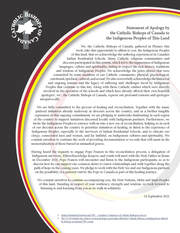 The Catholic Bishops of Canada, gathered in Plenary this week, took the opportunity to affirm and acknowledge to the Indigenous Peoples the suffering experienced in Canada’s Indian Residential Schools. Many Catholic religious communities and dioceses participated in this system, which led to the suppression of Indigenous languages, culture and spirituality, failing to respect the rich history, traditions and wisdom of Indigenous Peoples. They acknowledged the grave abuses that were committed by some members of our Catholic community; physical, psychological, emotional, spiritual, cultural, and sexual. They also sorrowfully acknowledged the historical and ongoing trauma and the legacy of suffering and challenges faced by Indigenous Peoples that continue to this day. Along with those Catholic entities which were directly involved in the operation of the schools and which have already offered their own heartfelt apologies, the Catholic Bishops of Canada expressed their profound remorse and apologized unequivocally. Together with the many pastoral initiatives already underway in dioceses across the country, the Bishops pledged to undertake fundraising in each region of the country to support initiatives discerned locally with Indigenous partners. Furthermore, they invited the Indigenous Peoples to journey with us into a new era of reconciliation, helping us to prioritize initiatives of healing, to listen to the experience of Indigenous Peoples, especially to the survivors of Indian Residential Schools, and to educate our clergy, consecrated men and women, and lay faithful, on Indigenous cultures and spirituality. They further committed to continue the work of providing documentation or records that will assist in the memorialization of those buried in unmarked graves. A delegation of Indigenous survivors, Elders/knowledge keepers, and youth will meet with the Holy Father in December 2021. Pope Francis will encounter and listen to the Indigenous Peoples, so as to discern how he can support our common desire to renew relationships and walk together along the path of hope in the coming years. The Bishops of Canada have pledged to work with the Holy See and our Indigenous partners on the possibility of a pastoral visit by the Pope to Canada as part of this healing journey. We are committed to continue the journey with the First Nations, Métis and Inuit Peoples of this land. 24 September 2021 27 September 2021
The Bishops of Canada, as a tangible expression of their commitment to walk with the Indigenous Peoples of this land along the pathway of hope, are making a nation-wide collective financial commitment to support healing and reconciliation initiatives for residential school survivors, their families, and their communities. With a target of $30 million over up to 5 years, this will include initiatives in every region of the country. The commitment will be achieved at the local level, with parishes across Canada being encourage to participate and amplify the effort. September 22, 2021 Dear Sisters and Brothers in Christ, The number of confirmed cases of COVID-19 being reported each day has significantly increased in our province. This brings to the forefront of our consciousness the need to safeguard the common good, and in charity to promote the safety of others by protecting our individual health and that of society. In some provinces, the sectors of healthcare, education and social services, public agencies and corporations have begun to announce mandatory vaccination as requirement for their employees and the public. This has resulted in the Diocese and the parishes receiving from members of the faithful the request for letters of exemption from the mandatory vaccination based on the grounds of religious belief. While the Diocese respects the freedom of a person’s individual conscience as the Church teaches, the Church and her ministers cannot objectively attest to or endorse a person’s process of discernment in coming to their decision of conscience. Therefore, the Diocese and the parishes will not be issuing any letters of exemption from vaccination. The clergy has been strongly encouraged instead to accompany and assist those requesting such letters to know and understand the teachings of the Church on vaccination during this pandemic through statements released by the Congregation for the Doctrine of the Faith, the Canadian Conference of Catholic Bishops (CCCB), and the pastoral letter provided by the Bishops of Alberta and the Northwest Territories. As stated by my brother Bishops and in communion with the Holy Father, it is morally permissible to receive a vaccine approved for use in Canada against COVID-19, and while there are many possible reasons for one to struggle in their conscience with such a vaccine being mandatory, the Diocese will not take the position or role of endorsing an individual’s conscience and decision. If vaccination will be mandated, there must also be on the part of legitimate authorities, the necessary provisions of reasonable accommodation which respects and promotes the dignity of the individual conscience and the decision of conscientious objection. However, those who choose not to be vaccinated for whatever reason must do their utmost to ensure that they take all precautionary measures possible to avoid places and circumstances where they and others would be most vulnerable. They must also follow the health and safety measures not only to prevent contracting the virus for themselves but also preventing others from becoming sick. This is everyone’s moral responsibility. Much prayer is needed in this time, in this polarized society, for those who have suffered so much and for those who continue to suffer from the reality of the pandemic. As Christians and people of goodwill, we must grow in our love and concern for others and use the gift of our freedom responsibly to help others especially those who are in most need. Sincerely yours in Christ, +William T. McGrattan Bishop of Calgary
Dear Sisters and Brothers in Christ, The reported discovery of the remains of 215 children at the former Kamloops Indian residential school has shocked the consciousness of our country, its people, the Church, and the world to the painful and dark reality of our Canadian Indian residential school system. This has also surfaced once again the suffering and trauma which continues to mark the lives of our indigenous brothers and sisters and their communities. On behalf of the people of the Diocese of Calgary, I personally share in this devastating sorrow and express my deepest regret at the loss of the lives of these children and the enduring pain which residential schools have caused within our indigenous communities. In solidarity, we must act in the pursuit of justice, reconciliation, and true healing. As the Bishop of Calgary, through this statement, I personally recommit the Diocese in expressing the apology and regret made by the Bishops of Alberta and the Northwest Territories in 2014 to our indigenous brothers and sisters. We, the Catholic Bishops of Alberta and Northwest Territories, apologize to those who experienced sexual and physical abuse in Residential Schools under Catholic administration. The picture and images of children’s shoes placed at the front steps with lit candles remind us of the voices of these children and the need for restorative justice. In prayer, we unite ourselves with our suffering brothers and sisters so that the Spirit will show us the path of solidarity in promoting true justice and healing. For those families deeply impacted, we ask for the intercession of St. Kateri Tekakwitha for them to receive consolation, healing, and strength. Sincerely Yours in Christ, +William T. McGrattan Bishop of Calgary June 4, 2021
The statement of Bishop McGrattan on the murder of a Muslim family in London, Ontario was read by Fr. Adrian Martens in his position as Coordinator of Ecumenism and Inter-Religious affairs at a rally and peace march across City Hall, Tuesday evening, June 8, 2021.
================== June 8, 2021 Dear Brothers and Sisters, On June 6, 2021, a family out on a walk was targeted for their Islamic beliefs. This attack has resulted in the deaths of four family members including a girl as young as 15, and a nine-year old boy still in hospital. This attack was truly heinous and against what we all stand for as Canadians. Firstly, I want to express the closeness of the Catholic and Christian community to the Muslim community. Over the years, side-by-side, we have spoken out jointly on the Rohingya Muslim crisis and the terrible mosque shooting in Quebec. Again, today we stand with Muslims against all religious hatred or intolerance of religious belief and practise. We stand together to denounce all forms of fear, hatred, and aggression against any person based on religion, gender, or culture. As our teaching at the Second Vatican Council states: “…the right to religious freedom has its foundation in the very dignity of the human person as this dignity is known through the revealed word of God and by reason itself. This right of the human person to religious freedom is to be recognized in the constitutional law whereby society is governed and thus it is to become a civil right,” (Dignitatis Humanae, 2). We, Muslims, Christians, and people of goodwill, must stand together to fight against intolerance and ignorance of religious belief or practise and protect this freedom which is a basic civil right. May we continue to advance the great work we have done together with the Calgary Interfaith Council, Habitat for Humanity, Calgary Catholic Immigration Services, and other venues. May we be reminded that there are more things that unite us than what divides us and that we must stand together against hatred, violence, and religious intolerance. Yours in God, +William T. McGrattan Bishop of Calgary Download Letter in PDF Let us join in prayer:
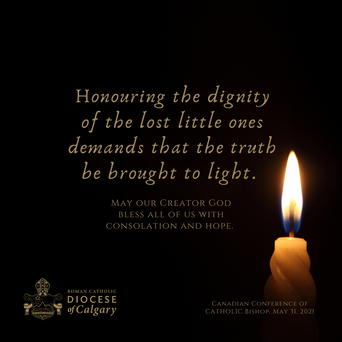 Statement from the Canadian Conference of Catholic Bishops following the recent discovery at the former Kamloops Indian Residential School on the Tk’emlúps te Secwépemc First Nation On behalf of the Canadian Conference of Catholic Bishops (CCCB), I express our deepest sorrow for the heartrending loss of the children at the former Kamloops Indian Residential School on the Tk’emlúps te Secwépemc First Nation. The news of the recent discovery is shocking. It rekindles trauma in numerous communities across this land. Honouring the dignity of the lost little ones demands that the truth be brought to light. This tragedy profoundly impacts Indigenous communities, with whom many people across this land and throughout the world now stand in solidarity. As we see ever more clearly the pain and suffering of the past, the Bishops of Canada pledge to continue walking side by side with Indigenous Peoples in the present, seeking greater healing and reconciliation for the future. We lift up prayers to the Lord for the children who have lost their lives and pledge our close accompaniment of Indigenous families and communities. May our Creator God bless all of us with consolation and hope. + Richard Gagnon Archbishop of Winnipeg and President of the Canadian Conference of Catholic Bishops, 31 May 2021
|
Author
Catholic Pastoral Centre Staff and Guest Writers Archives
July 2024
Categories
All
|
||||||||||||||||||||||||||||||||||||||||||||||||||||||||

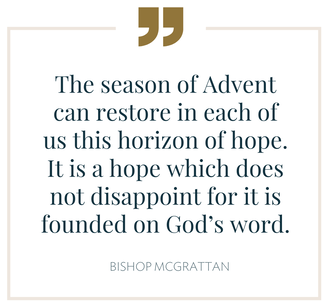
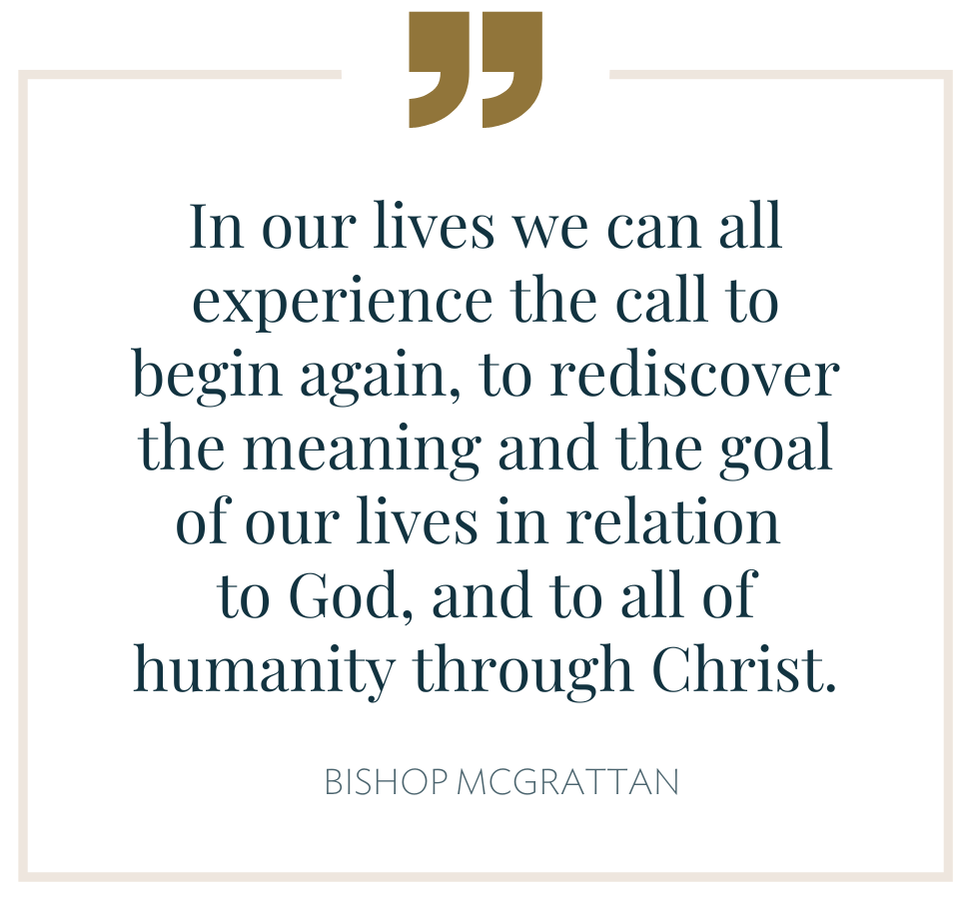
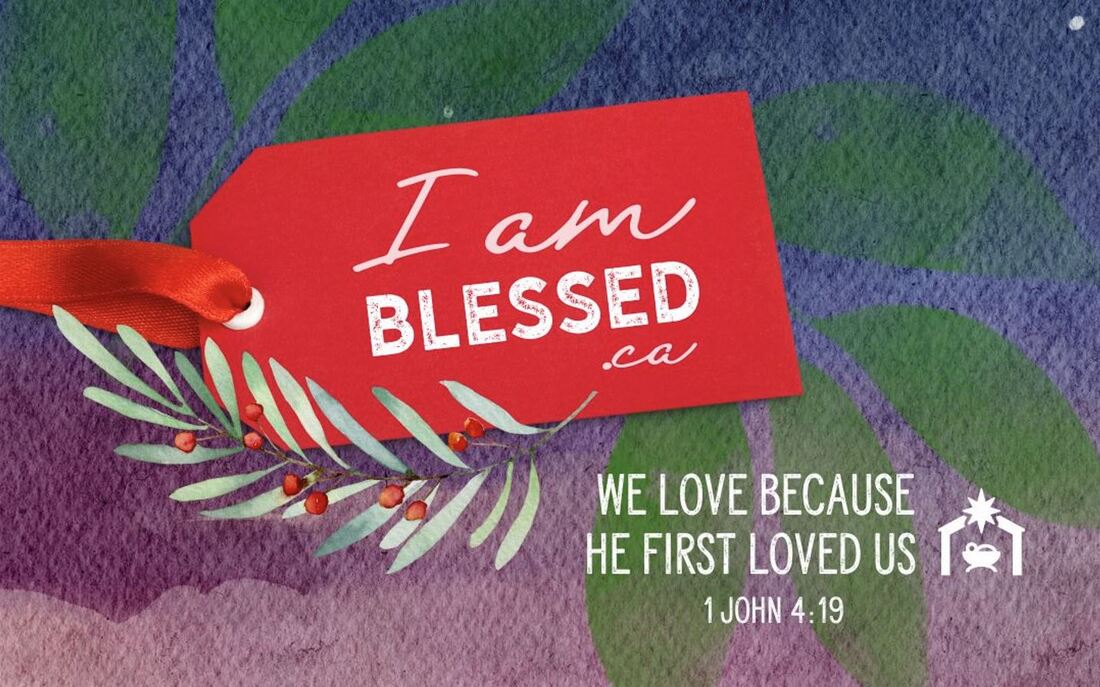
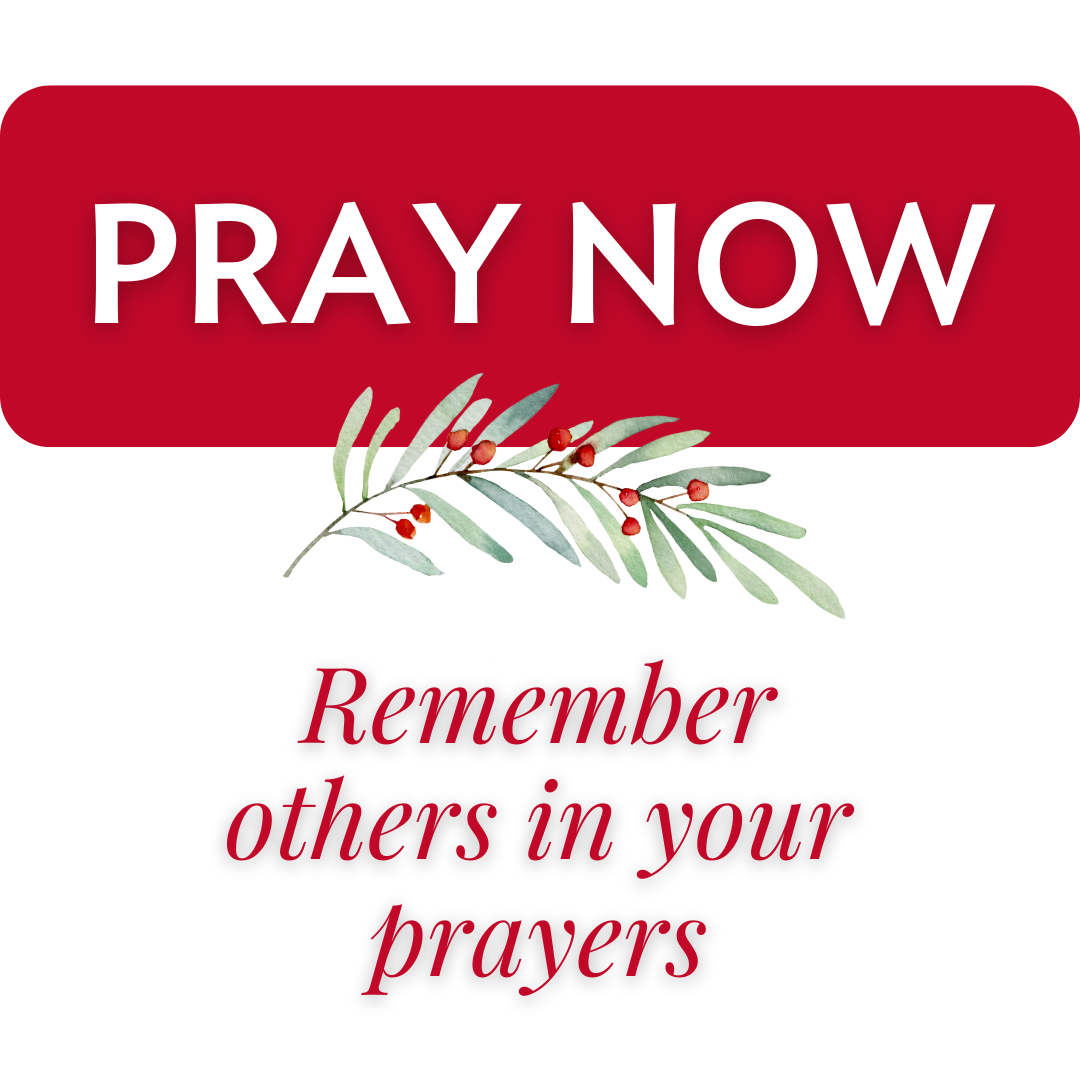


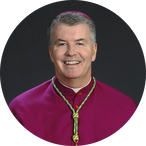
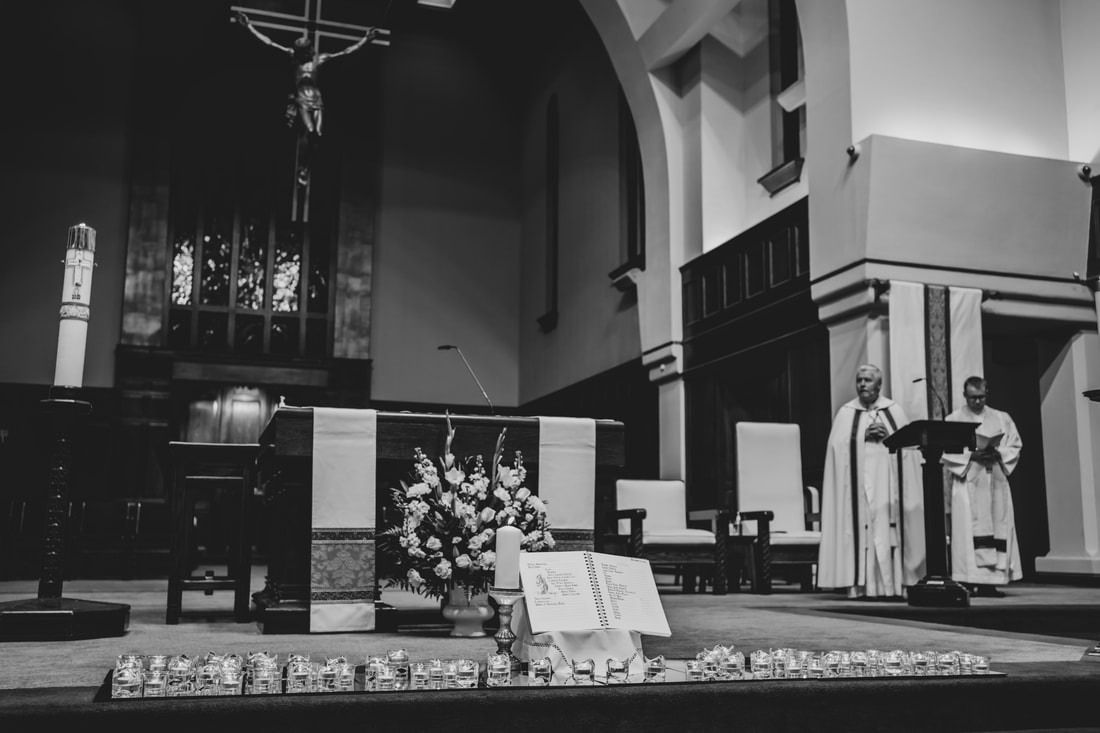
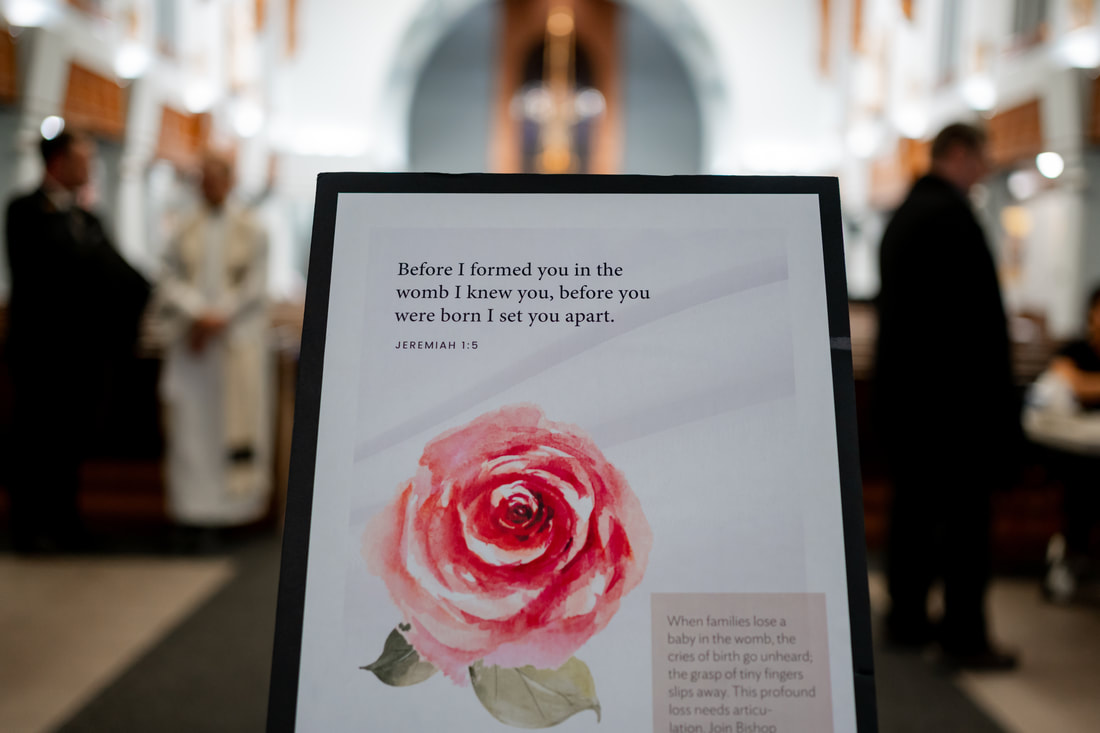
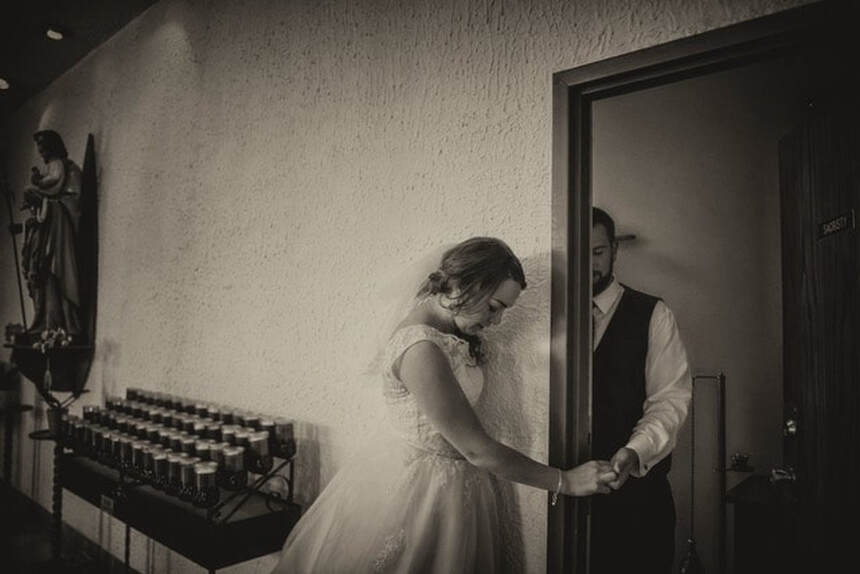
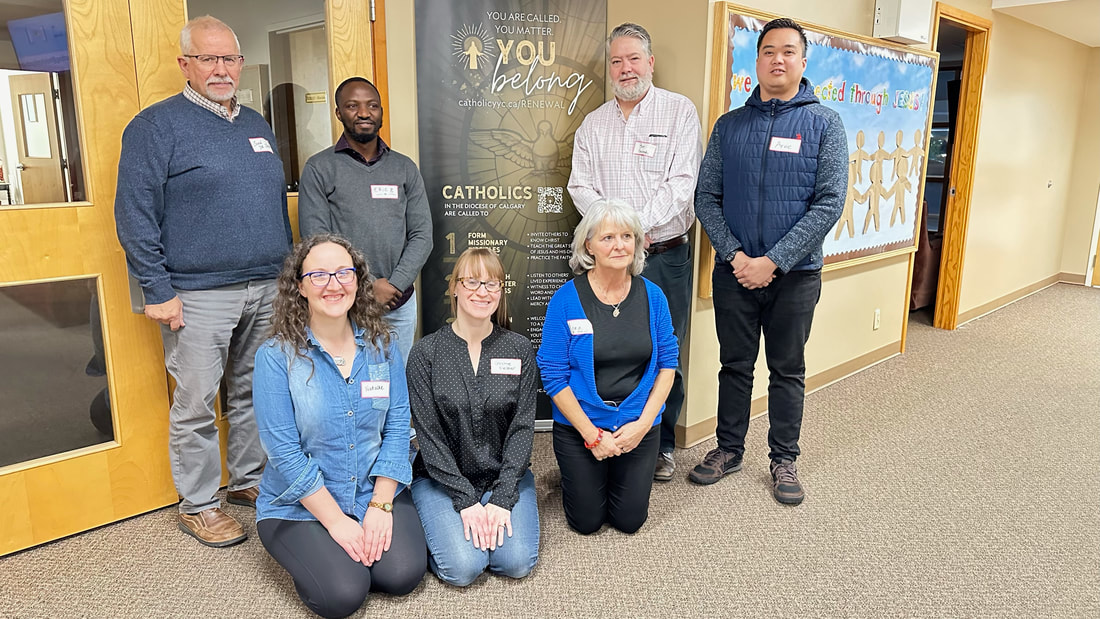
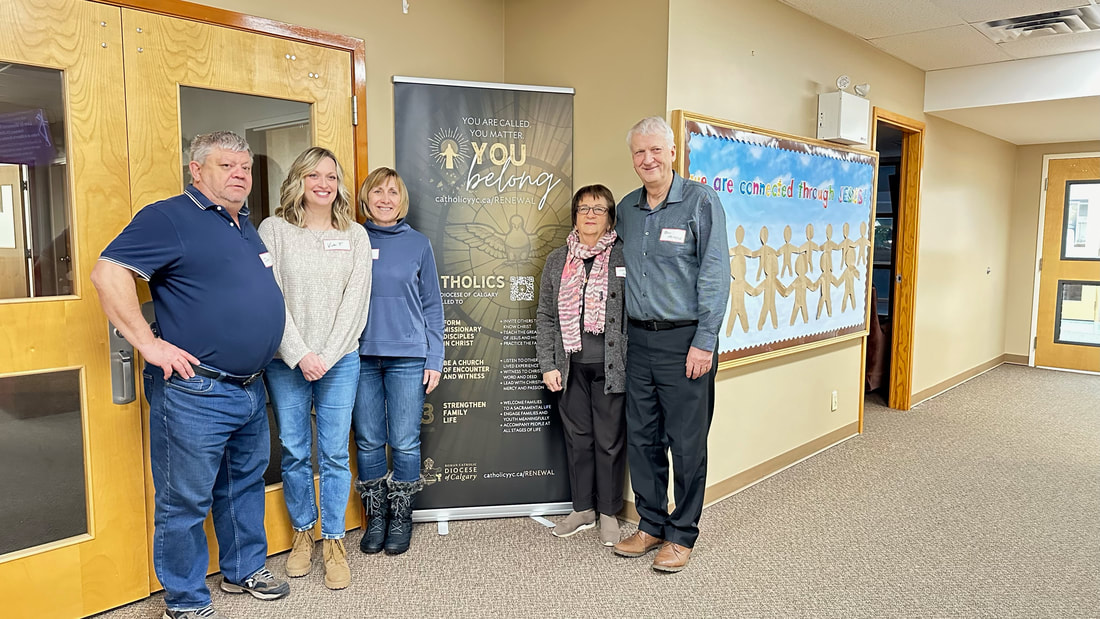
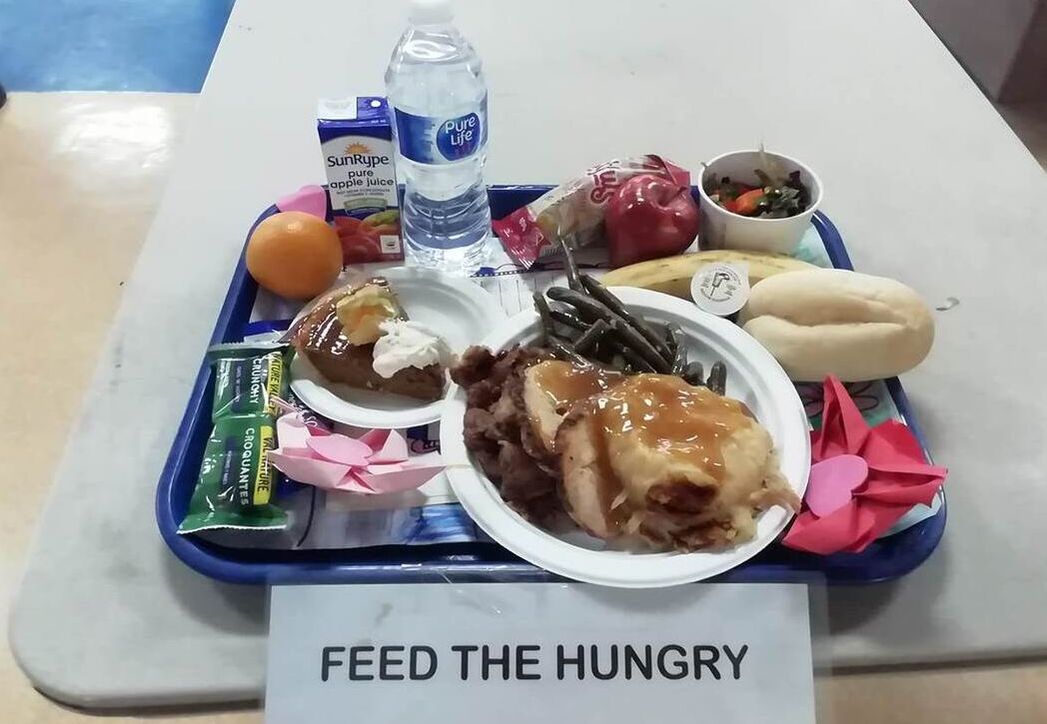
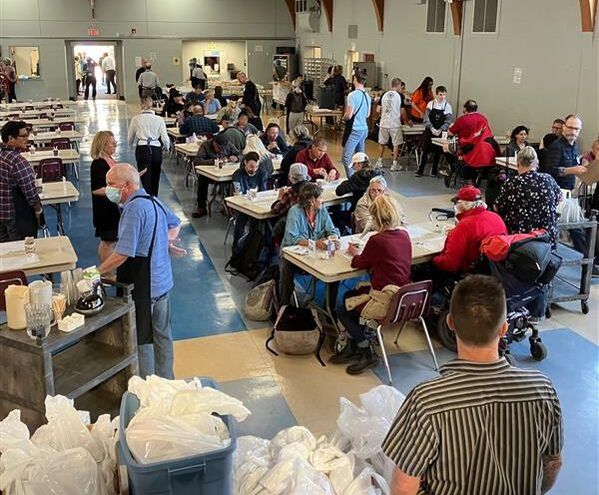


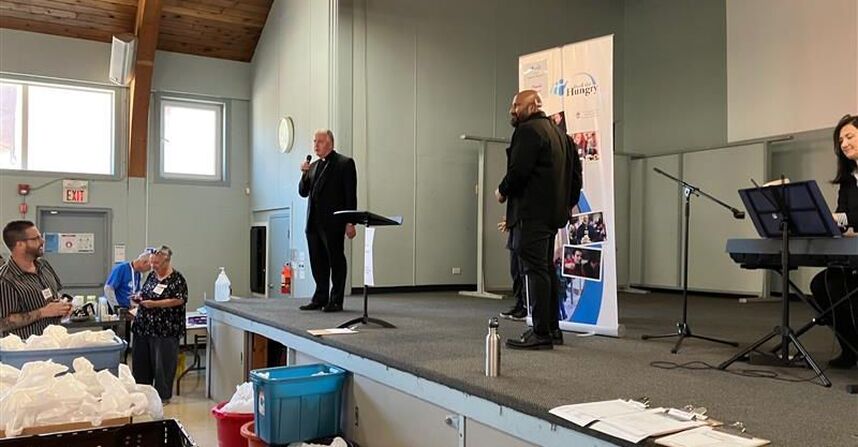
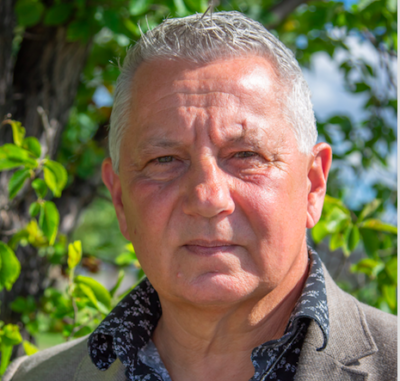
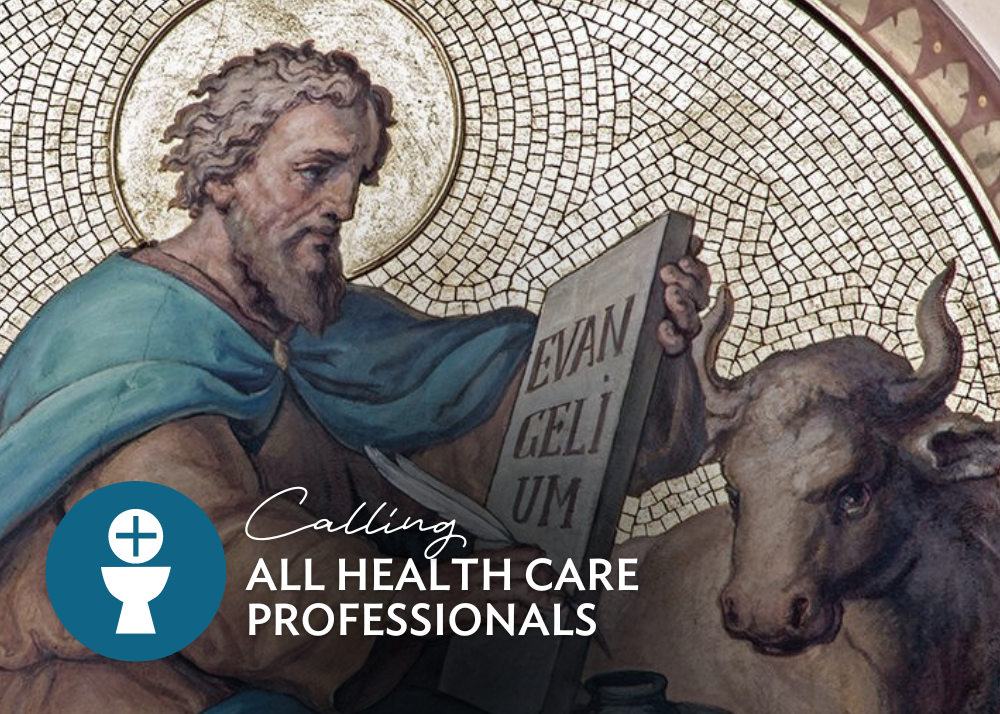
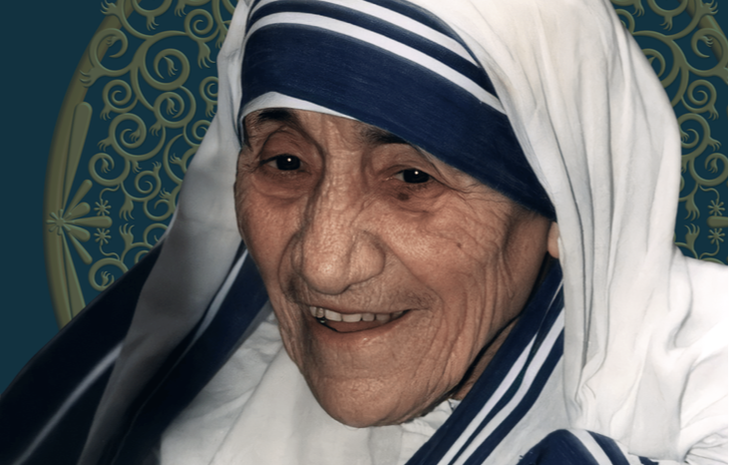

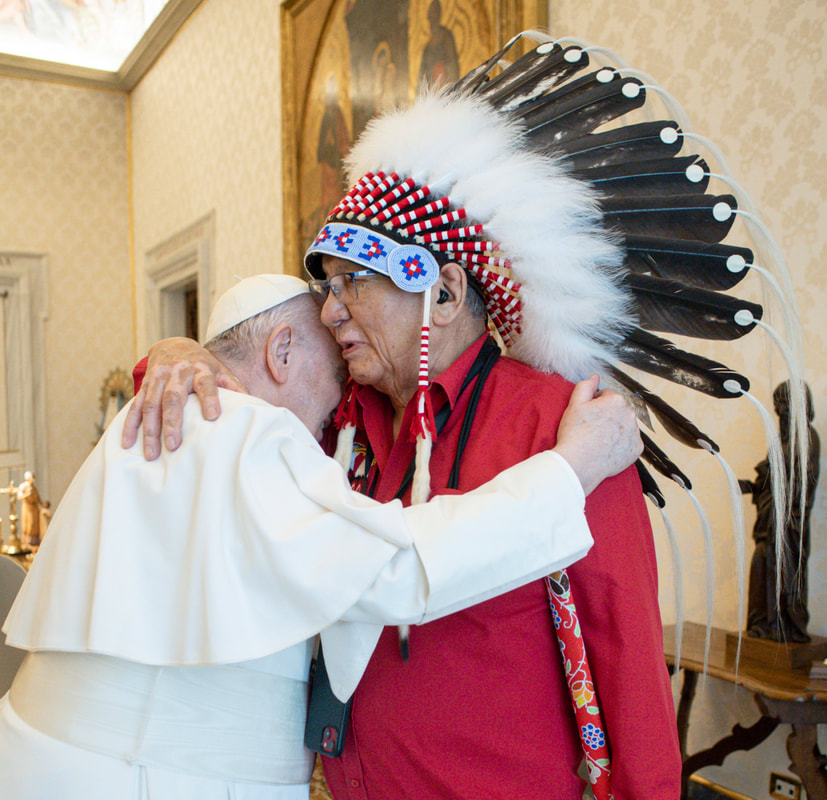
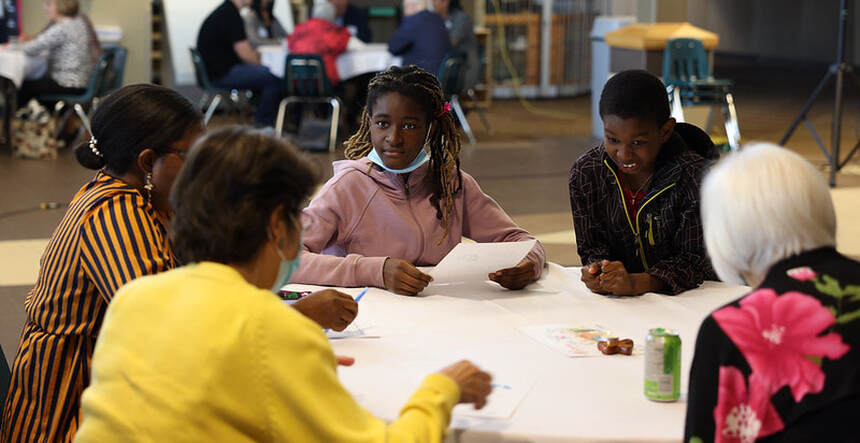
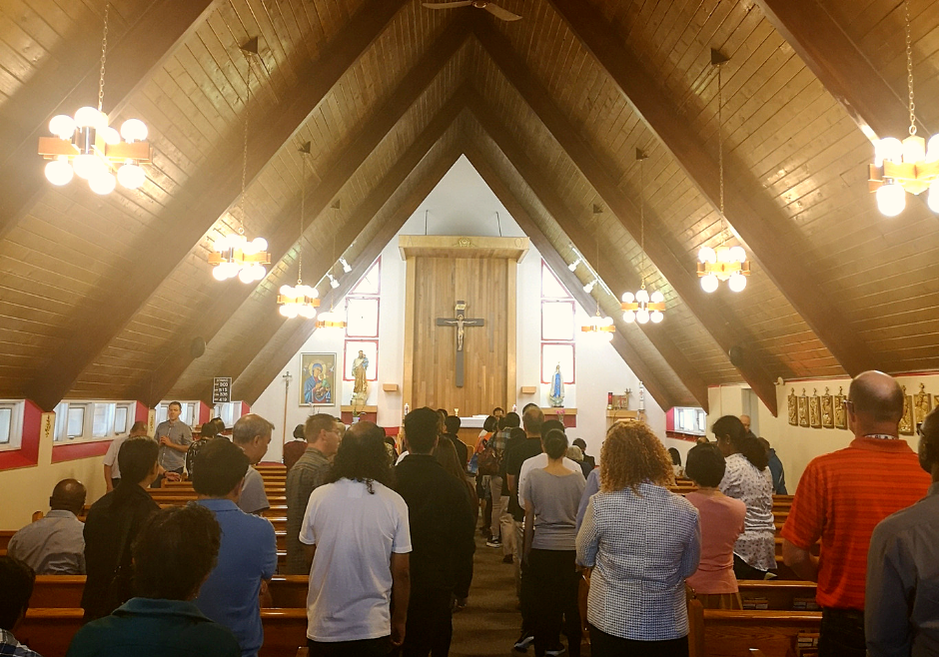
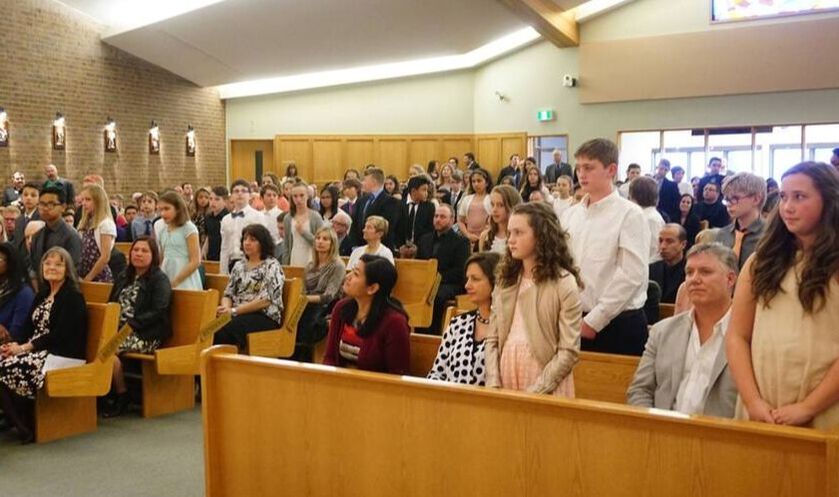
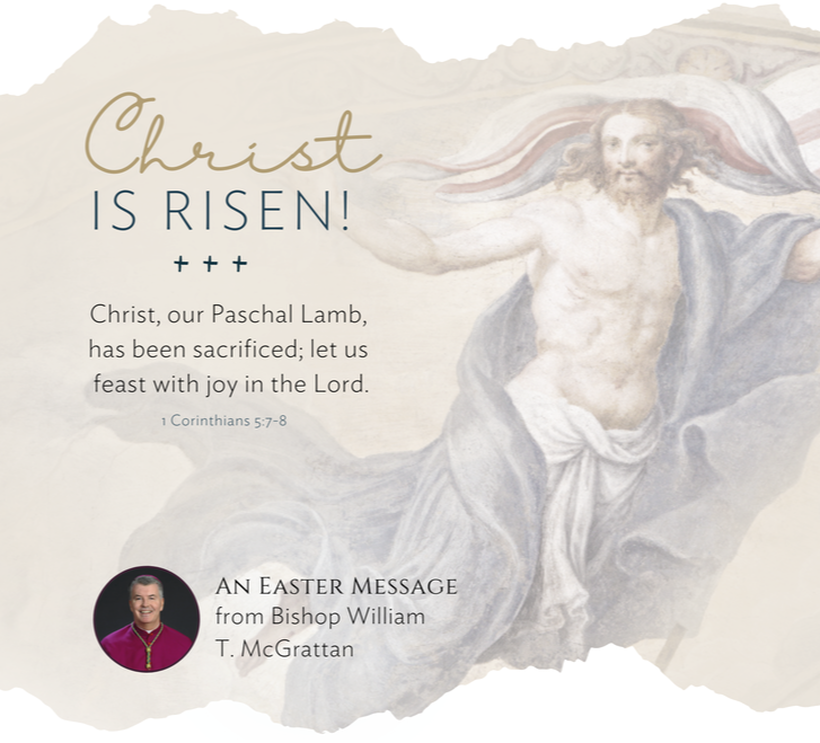
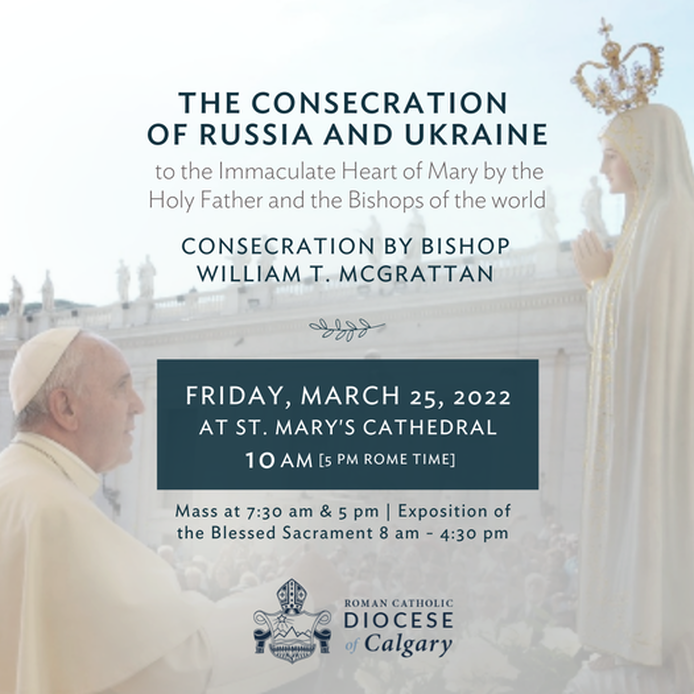
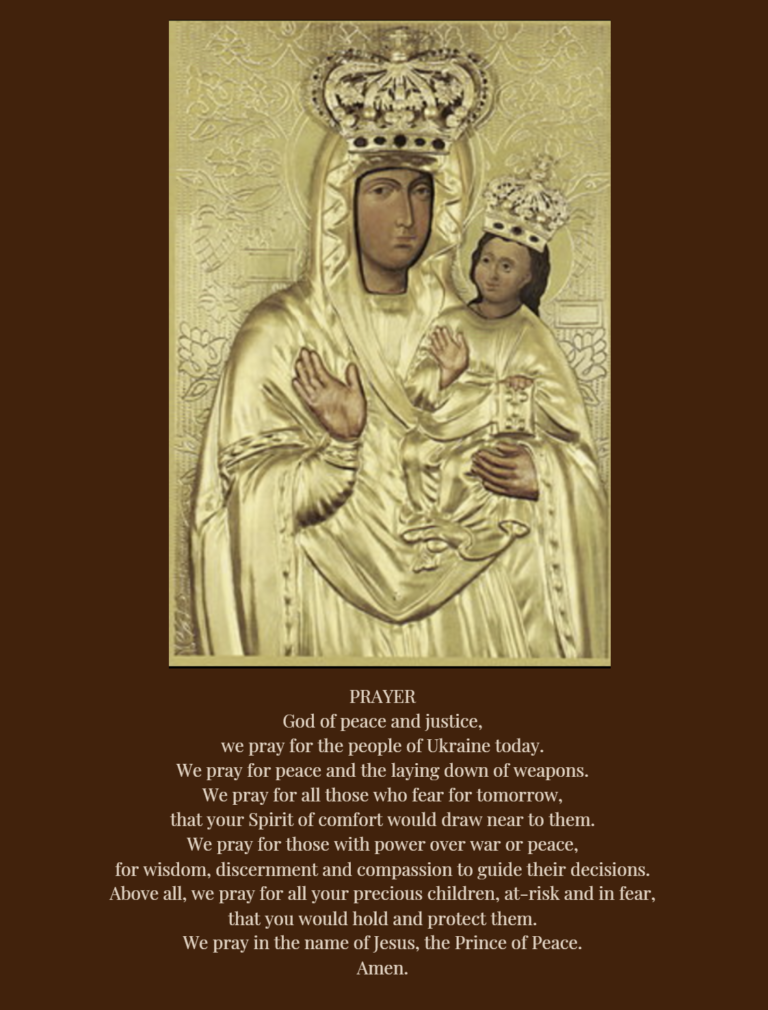



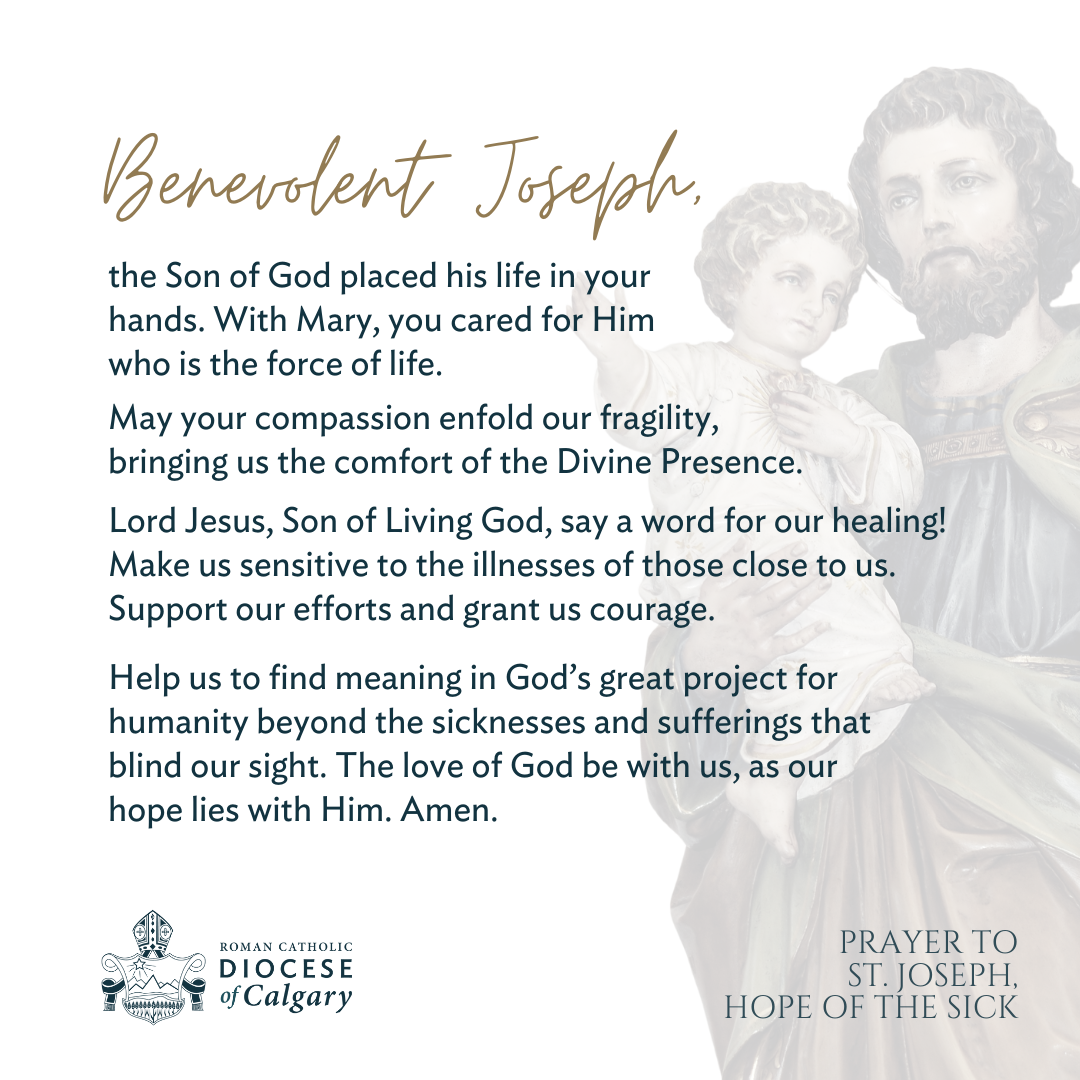
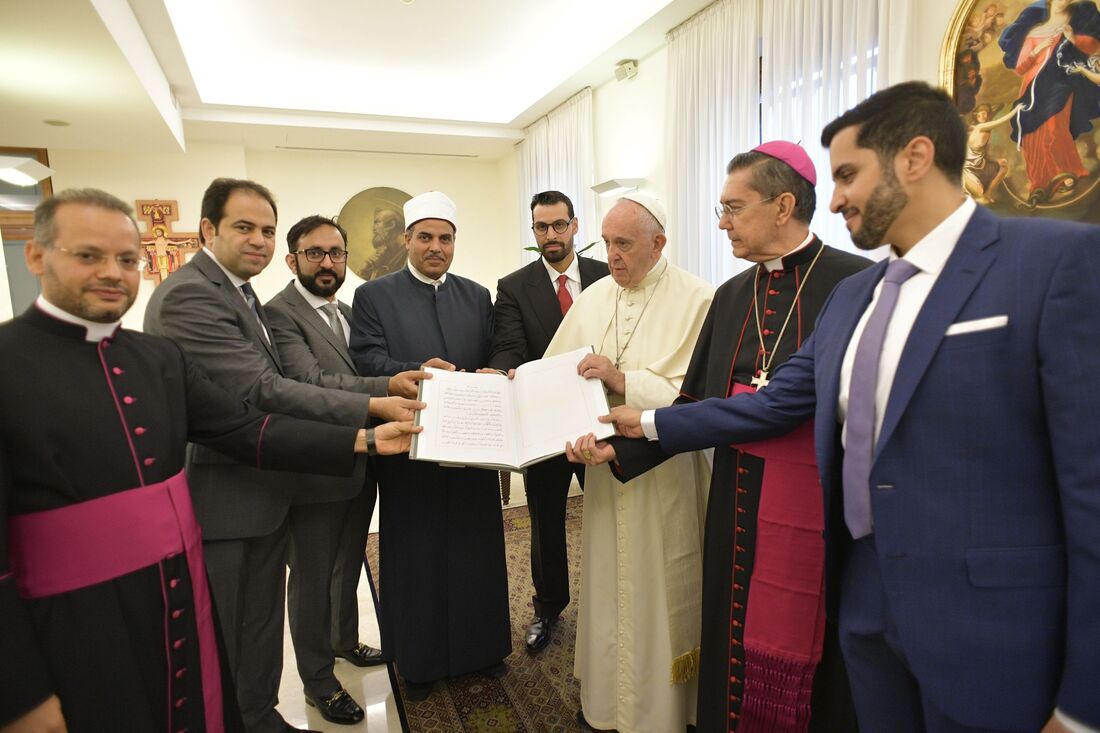
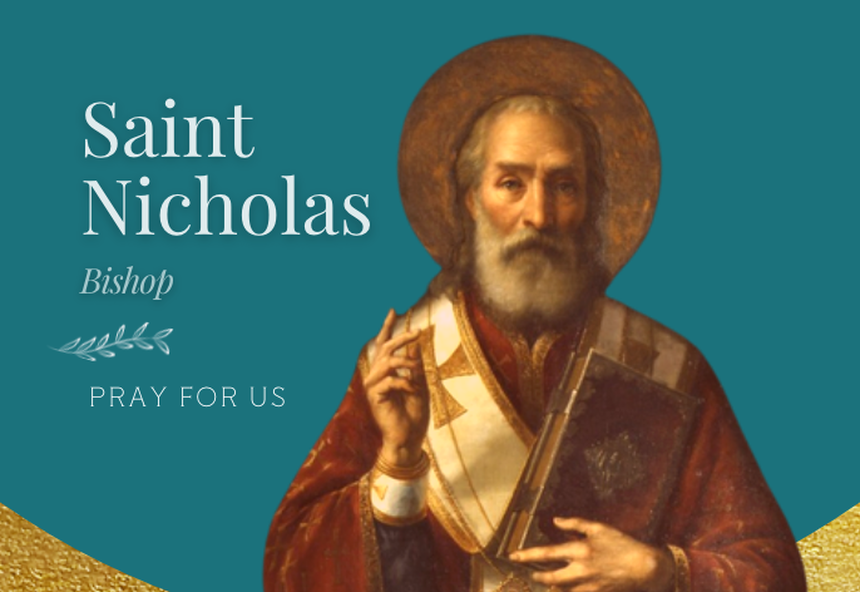
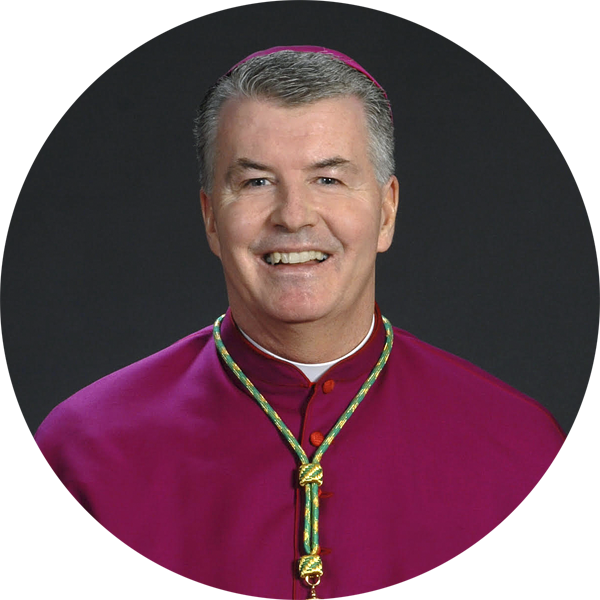
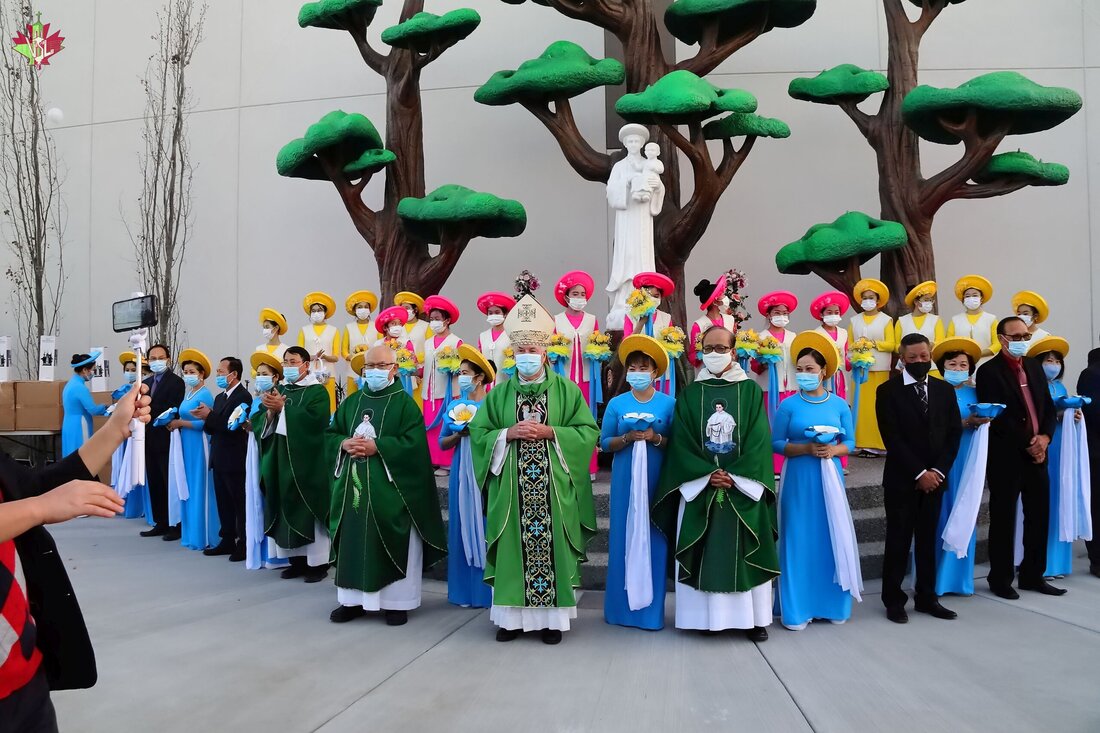
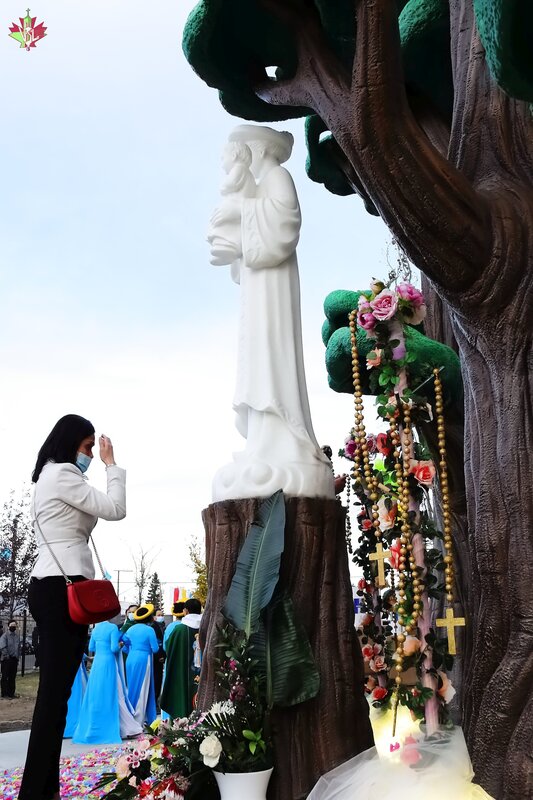
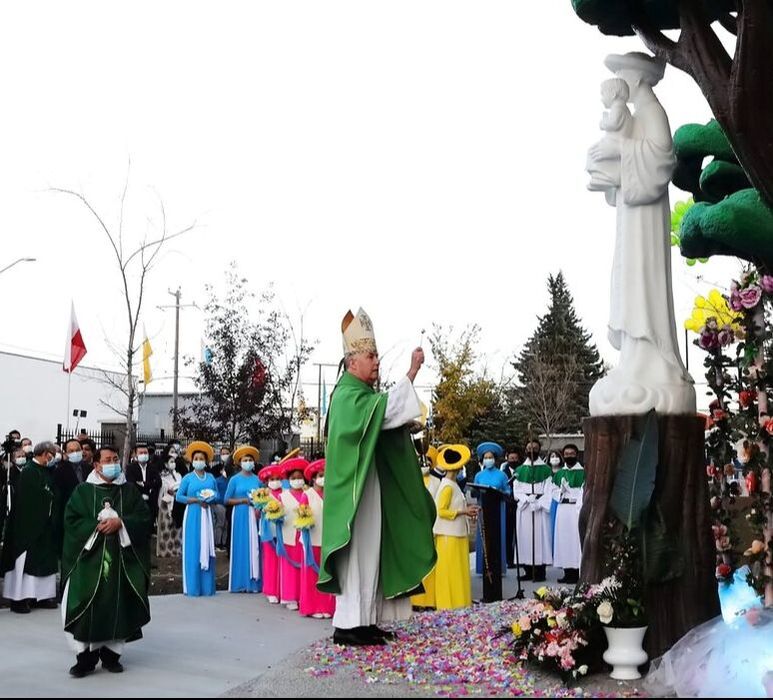
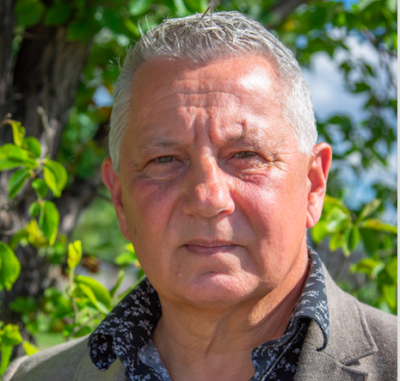
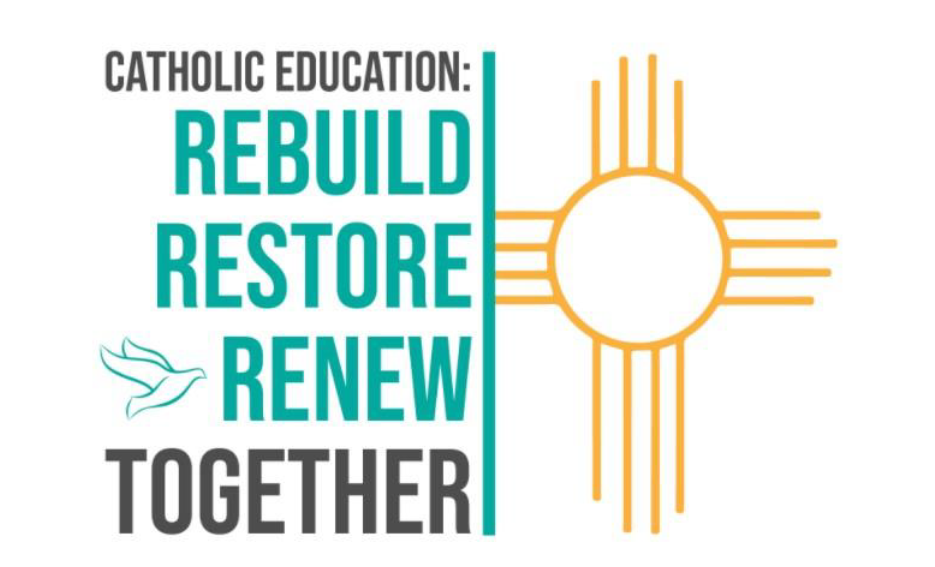

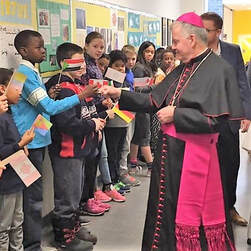
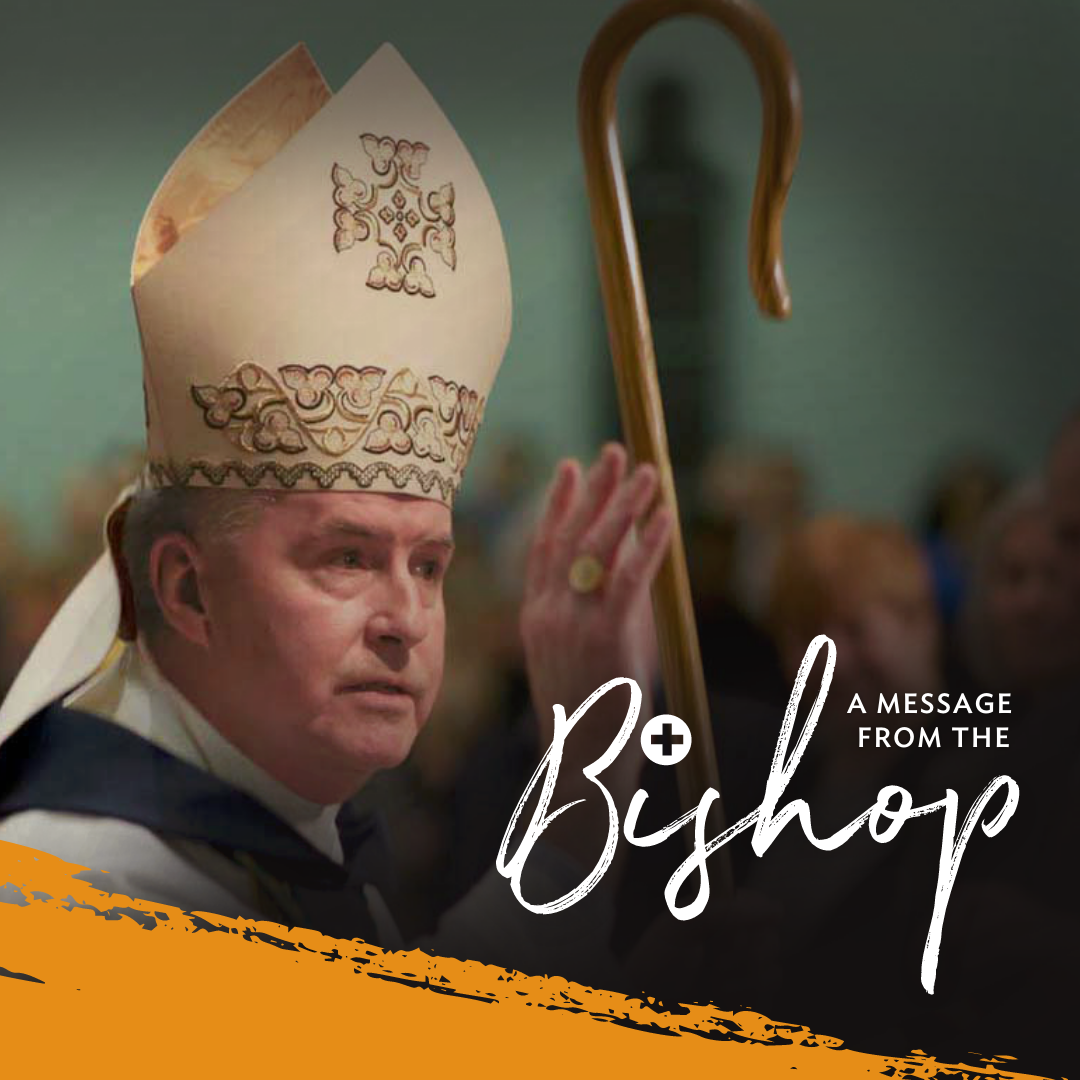

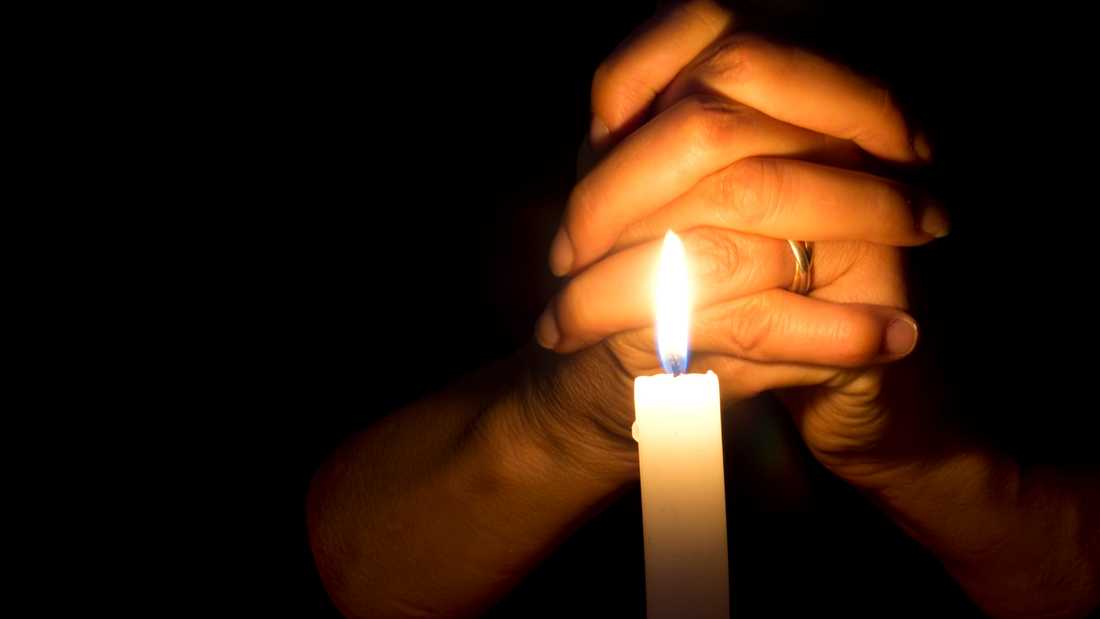

 RSS Feed
RSS Feed